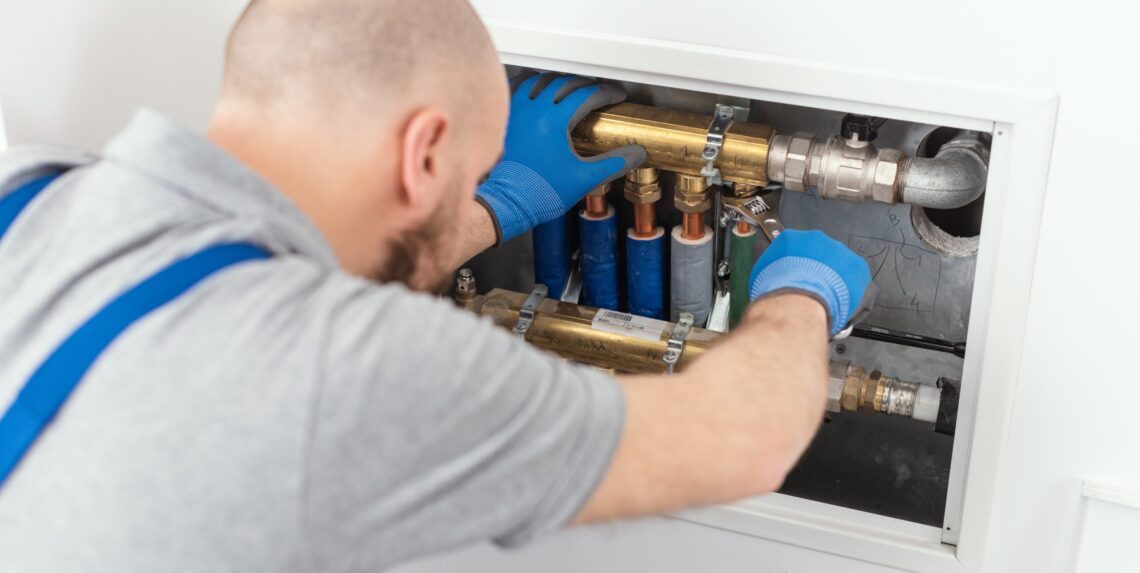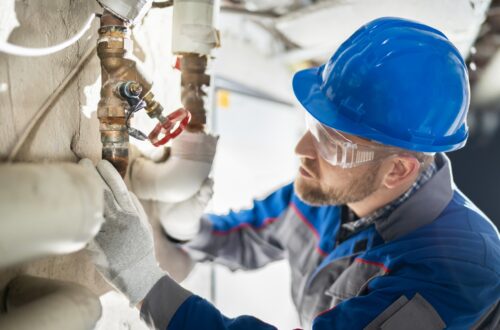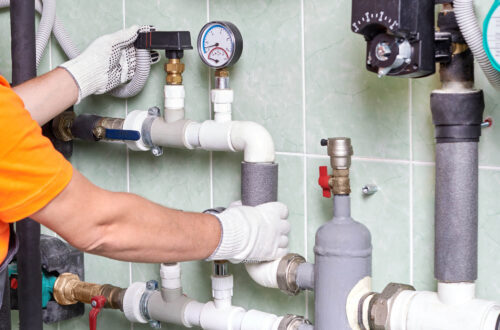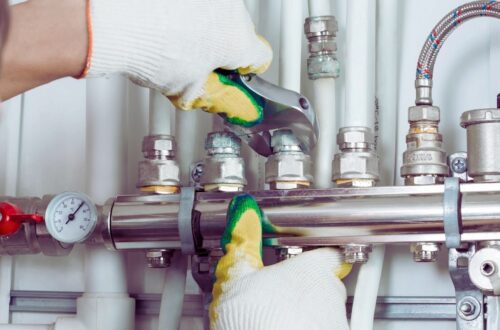Plumbing problems are often unavoidable, and they can quickly spiral into expensive issues if not addressed properly. Unfortunately, many homeowners believe certain plumbing myths that can end up costing them a lot of money. In this article, we’ll debunk five common plumbing myths, so you can avoid unnecessary expenses and keep your plumbing in top shape.
Myth #1: “If it’s not leaking, everything is fine.”
One of the most dangerous plumbing myths is the idea that if you’re not seeing visible leaks or water damage, there’s nothing wrong with your plumbing system. While it’s true that leaks are one of the most obvious signs of plumbing problems, there are many issues that can go unnoticed for a long time, such as slow leaks in hidden pipes, corrosion, or even clogs that aren’t immediately noticeable.
For example, leaks inside walls or under the foundation may not show up until significant damage has occurred. By the time you notice the problem, the cost of repair could be quite substantial, including the potential for mold growth or structural damage. To avoid this, it’s a good idea to schedule regular plumbing inspections with a professional to catch any hidden issues before they become major problems.
Myth #2: “Plunging a clogged drain always works.”
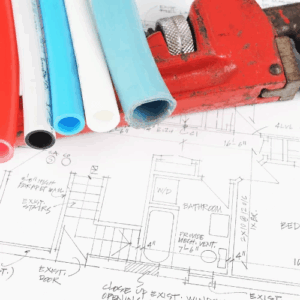 Using a plunger to clear a clogged drain is often a homeowner’s first line of defense, and while it can work for minor blockages, it’s not a cure-all. Many plumbing problems, such as stubborn clogs deep in the pipes, require more than just a quick plunge. In fact, attempting to plunge a serious clog could damage your pipes or make the issue worse.
Using a plunger to clear a clogged drain is often a homeowner’s first line of defense, and while it can work for minor blockages, it’s not a cure-all. Many plumbing problems, such as stubborn clogs deep in the pipes, require more than just a quick plunge. In fact, attempting to plunge a serious clog could damage your pipes or make the issue worse.
A persistent clog can often be a sign of something more serious, like a buildup of grease, tree roots invading the pipes, or a collapsed pipe. If plunging doesn’t solve the problem, it’s best to call a professional plumber who can use specialized tools like drain snakes or hydro-jetting equipment to clear the pipes safely and effectively.
Myth #3: “You can use chemical drain cleaners to fix any clog.”
Another common plumbing myth is the use of chemical drain cleaners to solve all drainage issues. While these products are widely available and seemingly easy to use, they can cause more harm than good. Chemical drain cleaners contain harsh ingredients that can erode your pipes, causing long-term damage, especially in older plumbing systems made of metal or PVC.
Moreover, these cleaners may not effectively clear stubborn clogs, and they can be dangerous to handle. In some cases, the chemicals may not fully dissolve the blockage and could lead to even more significant plumbing issues. Instead of relying on chemical drain cleaners, consider natural alternatives like baking soda and vinegar, or contact a plumber for professional help to avoid causing more harm and unnecessary costs.
Myth #4: “Hot water is the best solution for grease clogs.”
Many homeowners are under the impression that pouring hot water down the drain can help clear grease clogs. While it’s true that hot water may help to loosen some grease, it doesn’t actually solve the problem. Grease clogs in the plumbing system are notorious for being stubborn, and hot water alone won’t completely dissolve or remove the grease buildup from the pipes.
In fact, pouring hot water down the drain may push the grease further down the pipe, creating a more significant blockage in the long run. The best way to handle grease clogs is to prevent them in the first place by disposing of cooking grease in the trash and using drain covers or strainers to catch food particles. For stubborn grease clogs, call a plumber who can use professional methods, such as hydro-jetting, to remove the buildup.
Myth #5: “Fixing a small leak is an easy DIY task.”
When faced with a leaky faucet or a small pipe drip, many homeowners assume that it’s an easy fix they can tackle themselves. While some basic plumbing repairs may be within the skill set of an experienced DIYer, fixing a leak may require more than just tightening a few screws or replacing washers. In fact, small leaks can be signs of bigger issues, such as deteriorating pipes, corroded fittings, or pressure imbalances within the system.
Attempting to fix a leak without the proper tools or expertise can result in further damage to your plumbing system, leading to more expensive repairs down the line. Moreover, improper repairs can void warranties or insurance claims, leaving you with an even higher bill to pay. It’s always best to consult a licensed plumber to ensure that any leaks are properly fixed and that the root cause is addressed.
Plumbing myths can lead to costly mistakes that could have been avoided with the right knowledge. It’s important to recognize that while minor plumbing issues can often be addressed by homeowners, more significant problems require professional intervention. By debunking these myths and understanding the real issues behind common plumbing problems, you can avoid unnecessary repairs, save money, and maintain a healthy plumbing system in your home.
Remember, plumbing is a complex system, and while DIY solutions may be tempting, sometimes it’s best to leave the work to professionals who can diagnose and fix the problem correctly. Regular maintenance and early intervention are key to preventing major plumbing issues and ensuring the long-term health of your plumbing system.
